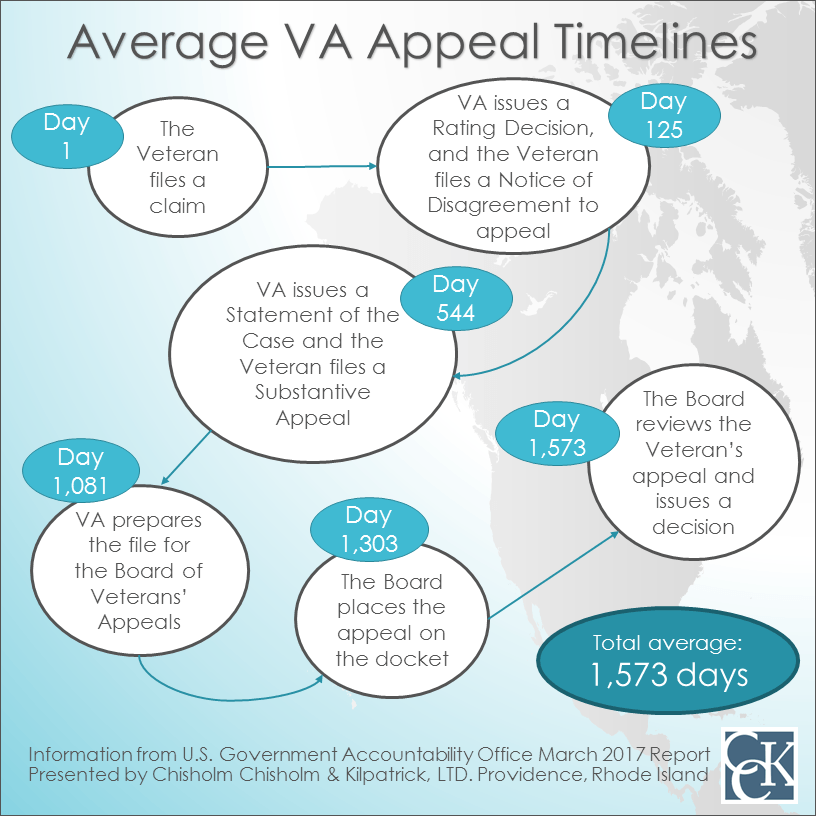How Long VA Appeals Process Can Take – Average Appeal Times for Disability Claims

CCK Law: Our Vital Role in Veterans Law
The length of the VA appeals process can vary tremendously based on many factors, including the specifics of a veteran’s case and which regional office is handling their claim. While veterans must meet strict appeal deadlines, VA does not have internal deadlines for when they must decide claims.
Government Report Provides Answers
In March of 2017, the United States Government Accountability Office (GAO) released a report titled “VA Disability Benefits: Additional Planning would Enhance Efforts to Improve the Timeliness of Appeals Decisions.” The report outlines VA’s current backlog in working on the appeals for disability benefits of veterans and their dependents.
The Numbers
According to the GAO’s report, these are some average wait times starting when the veteran files an appeal to when VA issues a decision on that appeal:
- 419 days: average time between when VA receives a Notice of Disagreement to when they issue a Statement of the Case
- 537 days: average time between when VA receives an appeal to the Board to when they certify that appeal
- 222 days: average time between when the appeal is certified to the Board to when it is placed on the Board’s docket
- 270 days: average time between when the appeal is docketed to when the Board issues a decision
It is important to note that these wait times are averages, and claimants may experience longer or shorter wait times.
Why GAO Investigated and What They Found
In fiscal year (FY) 2015, more than 427,000 appeals were pending at VA and the Board of Veterans’ Appeals, and veterans were waiting 3 years on average for decisions. Of the 427,000 appeals, approximately 81,000 were pending at the Board with an average cumulative wait time veterans experienced to receive a decision from the Board of 5 years.
GAO focused its report mostly on the Board due to the 20% workload increase the Board experienced between FY 2014 and 2015. At the time of the report, VA was taking steps to help alleviate the backlog including hiring more staff and improving software used in working appeals.
What Can Veterans Do To Speed Up the Process?
Unfortunately, after submitting an appeal and all the necessary evidence, there is not much that a claimant can do in order to speed up the time it takes for VA to decide their appeal. However, veterans can act quickly on certain parts of their claim to prevent further delay in the VA appeals process.
First, a veteran can submit all of their evidence at once. When a veteran files an initial claim, they can submit all of their evidence at that time or file a Fully Developed Claim. This will prevent VA from having to obtain additional evidence and do further development for the claim, and can help prevent delays in the VA appeals process.
Second, veterans can submit their appeals promptly when they receive a decision with which they are not satisfied. VA holds veterans to specific appeal deadlines when they issue a decision, and filing an appeal soon after the decision is issued can prevent any further delays in the process of receiving another decision. Additionally, if a veteran has additional evidence they would like to submit, they can submit it with their appeal so VA has that evidence right when the appeal is filed.
About the Author
Share this Post
